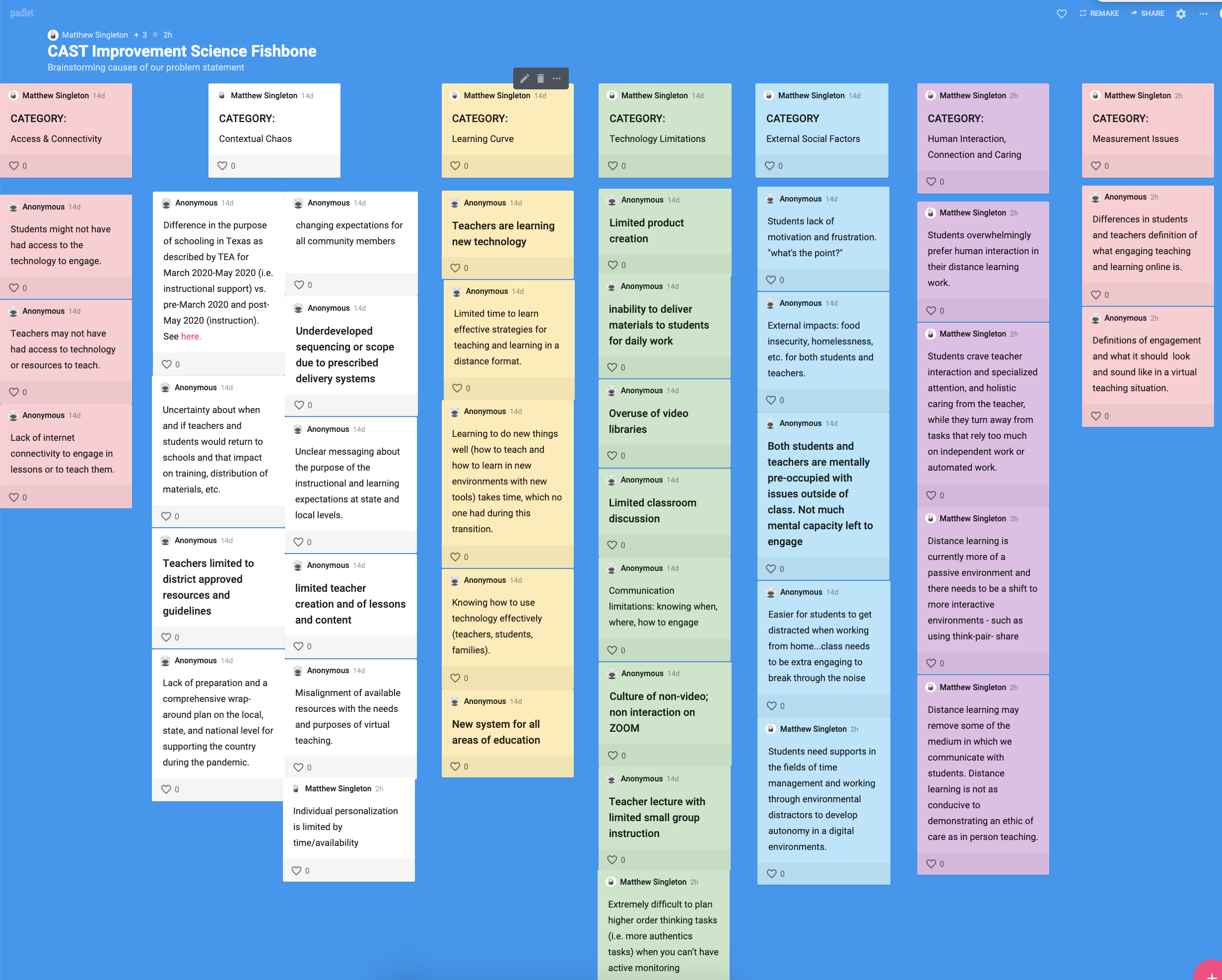Our Improvement Science Services
UEI currently has a limited number of spots open for school and district partners interested in engaging our Improvement Science services for the 2021-2022 school year. Our services include full support, training, and coaching for a team of educators on your campus, along with customized survey data collection and improvement science tools. Our program is ideal for fulfilling the Texas Education Code's requirements around conducted a Campus Needs Assessment and developing a Campus Improvement Plan. For more information, contact Matthew Singleton, K-12 Improvement Science Director, at matthew.singleton@utsa.edu.
Sample Improvement Science Toolkit
The work of continous improvement can be daunting without a clear process and the right tools. Our growing Improvement Science Toolkit offers educators flipped lessons, task guides, and more that cover a range of important methods, protocols, and practices needed to do the work of improving. Check out a sample of our improvement tools located below:



